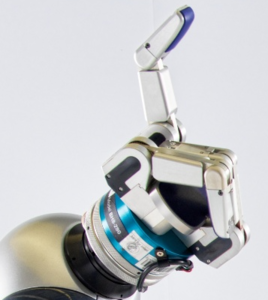Revisiting Contact - Turning a Problem into a Solution (Workshop)
Workshop July 17, 2017 during RSS (Robotics: Science and Systems Conference) at the Kresge Auditorium at the Massachusetts Institute of Technology in Cambridge, Massachusetts, USA.
Physical contact used to be a problem in robotic manipulation research. Today, it seems to be the solution. For example, object manipulation behaviours which maximize contact and exploit contact constraints with the environment are very robust. Furthermore, physical interaction with the environment facilitates perception by creating rich, informative sensory signals that would otherwise not be present. Evidence both in humans and robots shows that these two principles of (i) exploiting contact constraints and (ii) interactive perception are essential for robust manipulation and perception under uncertainty. Yet, autonomous generation of the underlying behaviours or chaining them together remains a challenge. Existing, traditional contact models are based on a powerful and concise mathematical formalization.
They make simplifying assumptions such as stable, non-slipping point contacts or Coulomb friction that ensure computational tractability. While this allows elegant solutions to multi-contact planning, many of these assumptions do not translate well into the real world that is riddled by uncertainty. The simplification may also limit the opportunities to exploit contact as they consider only contacts between hand and the object, ignore contacts of surface patches, sliding contacts, and seldom consider the perceptual information gain from contact interaction.
The central question of this workshop is how we bridge the gap between the traditional, model-based approaches and the promising contact-seeking behaviours that recently emerged as an alternative for achieving robust manipulation and perception. This workshop brings together researchers from different areas such as autonomous grasping and manipulation, robotic hand development, soft manipulation, whole-body control for legged robots and interactive perception. All of these topics share that at their core they are concerned with the problem of making and breaking contact. Through presentations and discussions, we will establish a shared understanding of the challenges we as a community must address to fully develop this novel view of manipulation.
This workshop is co-organized by Jeannette Bohg and Oliver Brock.


